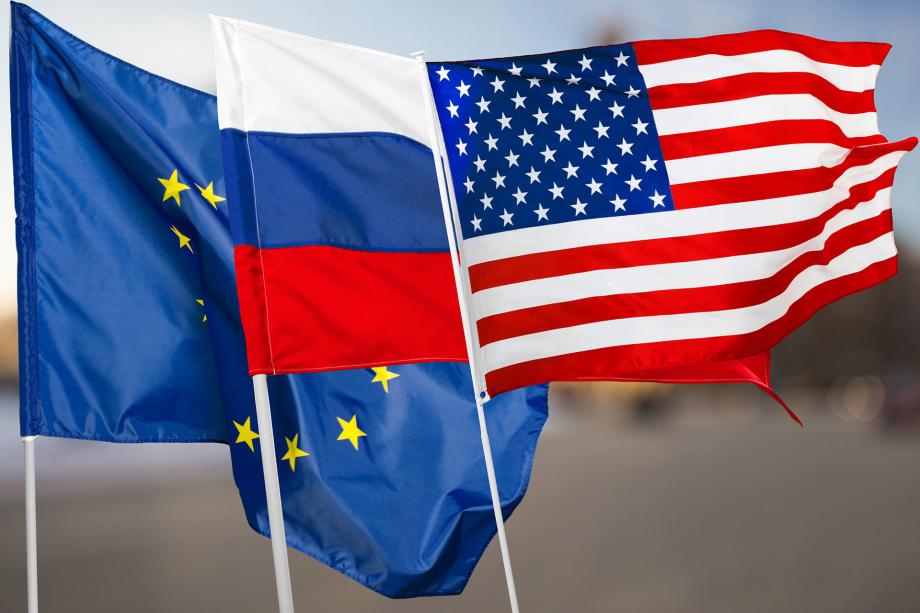The EU’s Struggle to Manoeuvre in the IR Arena: Reflections on the EU Council Summit 22-23 March

The agenda for the latest EU Council summit was ambitious. Besides Brexit, the points of discussion were to include trade, digital tax, relations with Turkey and Russia, internal market and possibly EMU reforms. The formation of a new German government and the meeting between President Macron and Chancellor Merkel before the summit created a sense that things are coming back to normal and the Council can set to work on its agenda.
However, two issues took center stage at the summit - the steel and aluminum tariff announcements from the White House and the attack with the ‘Novicok’ chemical agent on Sergei Skripal, former Russian double agent living in the U.K. The Union found itself directly targeted by actions initiated by two other major powers — the United States and Russia. While the possibility of a trade war with the U.S. increases the threat of a new rift in the transatlantic relations, the poisoning of Skripal reminds some of the Cold War period. What does this mean for the EU and its international relations?
On the one hand, Trump’s tariff announcement, considered by most EU members to be a serious tangible threat, has brought about a solid expression of the EU’s unity. Even the short-term exclusion of the EU countries from the new tariffs, announced conveniently during the EU Council’s proceedings, has not appeased the member states. The general feeling is that the EU doesn’t negotiate with a gun pointed at its head.
Yet, careful evaluation might uncover possible cracks in the unified response if the new tariffs become a reality. Immediately after the U.S. officially announced that they would introduce higher tariffs on steel and aluminum, the EU prepared countermeasures, aiming to affect industries that are at the heart of America’s pride, such as Harley Davidson. While such tit-for-tat tactic was surely anticipated by all sides, the new tariffs battle has been spilled over two other issues sensitive for both the EU and the U.S. While Germany has been warned that their car industry will run into great obstacles on the U.S. market, the Commission is taking aggressive steps to change taxing mechanisms for digital platforms, directly affecting powerful U.S. companies like Google, Apple, Facebook and Amazon (GAFA). But none of this is as straightforward as it might appear. First, Germany will not allow its car industry to become a hostage and second, any tax changes in the EU necessitate a unanimous vote.
And while the EU, as one unit, speaks with one voice for now, standing against President Trump’s steel and aluminum tariffs, the disturbance caused by the U.S. administration on the world markets has further been perpetuated by his announcement of a 60-billion-dollar penalty for China. On the global scale, the fear of China’s retaliation pushed the dispute between the U.S. and the EU to the background.
But let’s get back to the recent EU Summit. The trade-related worries have given way to security threats. The poisoning of Skripal in the U.K. caused shock, sorrow and fear in democratic societies. Although somewhat desensitised by years of being exposed to news about terrorist attacks, mainly in the Middle East, the use of a chemical weapon shocked and terrified most Europeans. The probable Russian connection has quickly opened a heated discussion and created divisive lines among the EU member states.
Some countries vowed and campaigned for a unified action against Russia — anything ranging from expelling Russian diplomats to stiffer sanctions. By Monday after the summit, 14 EU members have expelled a number of diplomats. Others, such as Greece, used the opportunity during the summit to push their own agenda for introducing a tougher language on Turkey before agreeing to a common text on Russia in the summit conclusions. And some were just not ready to stand up against Russia. Let’s take Bulgaria for example. The current government is trying to impress the EU, Russia and even Turkey. On the one hand, the country is dependent on EU funds and it would do better with less accusations of corruption and judicial system failures by EU institutions. Simultaneously, Bulgaria would not be able to handle the EU’s external border without the EU-Turkey migration deal. Lastly, there is a high level of unwavering sentiment resulting from cultural and historical closeness to Russia in the Bulgarian society.
Finally, the threat of an actor being willing to use chemical weapons on European soil, and more broadly, the threat of external actors interferring in the domestic territory, has been taken seriously. Yet, while more than a half of the EU members have decided to expel a number of Russian diplomats, the EU has not been able to speak with one voice on the world stage. Only after others such as the U.S., Canada or Australia followed suit, the response has been amplified and transformed into a more global campaign. Russia has an interesting relation to the concept of multilateralism. On the one hand, Russia often propagates the need and importance of the UN platform and other multilateral formats. Yet, it just as often uses these platforms to unilaterally veto actions.
But, what conclusion can be drawn from the developments around the EU Council Summit on 22-23 March regarding the Union’s ability to stand firmly on the global stage? When it comes to IR and games played by major powers, the EU is still not able to present itself as a unified and strong actor. It will be able to win only when its member states are able to stand unanimously together. However, if they do not pull together, without the help of other strong global players, their separate actions will lack real power.